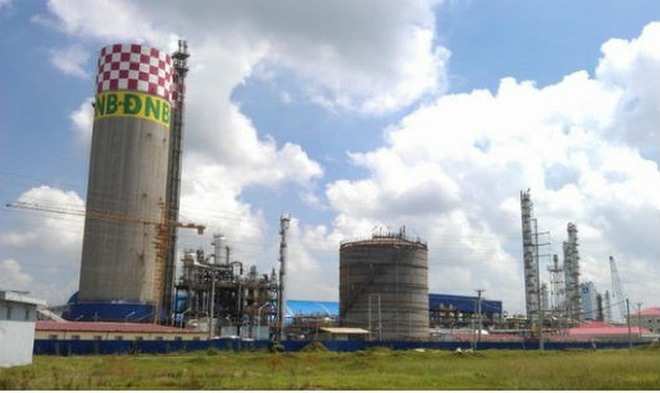 Economy
Economy

Việt Nam National Chemical Group (Vinachem) has proposed to the Prime Minister to delay the equitisation of the losing Ninh Bình Nitrogenous Fertiliser Plant until it generates profits again in order to ensure effective restructuring.
 |
| The Ninh Bình nitrogenous fertiliser plant of Việt Nam National Chemical Group (Vinachem). Vinachem) has proposed to the Prime Minister to delay the equitisation of the losing Ninh Bình Nitrogenous Fertiliser Plant until it generates profits again in order to ensure effective restructuring. — Photo cafef.vn |
HÀ NỘI – Việt Nam National Chemical Group (Vinachem) has proposed to the Prime Minister to delay the equitisation of the losing Ninh Bình Nitrogenous Fertiliser Plant until it generates profits again in order to ensure effective restructuring.
The plant has incurred losses since its opening in 2012 estimated at over VNĐ3.3 trillion (US$145.4 million) by the end of 2016.
The management authority has faced a dilemma between a plant closure and continued production that could result in further losses of VNĐ1.2 trillion in 2017.
In case of closure, the plant would have to spend around VNĐ1 trillion per year to repay its debts.
The Ninh Bình and Hà Bắc nitrogenous fertiliser plants, two member companies of Vinachem, are among the 12 loss-making projects under the Ministry of Industry and Trade (MoIT).
In Vinachem’s Q4 equitisation report to MoIT, the national chemical group attributed the poor performance to heavy lending interest, quick depreciation and a drop in urea fertiliser prices in both local and world markets.
Apart from the Ninh Bình plant, the report to the Prime Minister by Vinachem also mentioned troubles in selling stakes in other member companies, including the Hà Bắc plant, Industrial Gases and Welding Electrode Co Ltd, Hà Nội Soap JSC and Vĩnh Phú Battery JSC.
Vinachem reported its charter capital rose to over VNĐ13.8 trillion but is still lower than the Government’s approved capital of VNĐ15 trillion. It has faced a capital shortage to repay debts as well as make investments.
Under the 2016-20 restructuring scheme submitted to MoIT, Vinachem has sought the approval of the Prime Minister and MoIT to allow the corporation to plan its divestment roadmap in member companies to ensure feasibility and efficiency.
The chemical group is set to carry out equitisation from 2017 to 2019 and proposes that the Government retain a controlling stake of between 51 per cent and 65 per cent after equitisation. It also plans to raise its charter capital by VNĐ5 trillion through a share issuance during equitisation.
It has set targets of VNĐ43.6 trillion in total revenues and VNĐ155 billion in profits in 2017. – VNS




